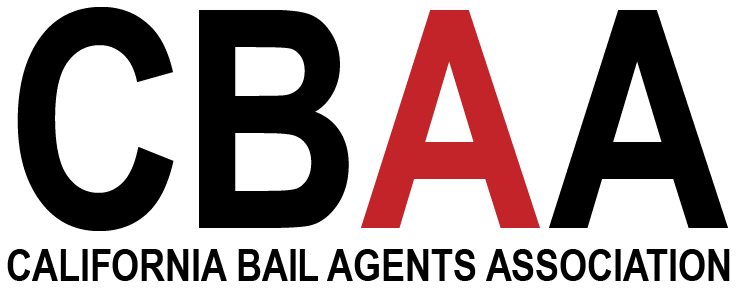Understanding SEO: The Science Behind Online Visibility

Search Engine Optimization (SEO) has become an essential aspect of digital marketing, ensuring that websites gain visibility and attract organic traffic from search engines. The increasing reliance on online platforms for information, products, and services has made understanding SEO critical for businesses and content creators alike. This article delves into the science behind SEO, its components, and best practices for optimizing online presence.
The Basics of SEO
SEO is the process of enhancing a website’s visibility in search engine results pages (SERPs) through organic means. Unlike paid advertising, which can yield immediate results, SEO is a long-term strategy that requires continuous effort and adaptation. The primary goal of SEO is to rank higher for relevant keywords and phrases that potential customers are searching for, thereby driving more traffic to the site.
Search engines like Google, Bing, and Yahoo use complex algorithms to determine the ranking of web pages. These algorithms consider various factors, including relevance, authority, and user experience. Understanding these factors is crucial for anyone looking to optimize their online content.
Key Components of SEO
SEO can be broadly categorized into three main components: on-page SEO, off-page SEO, and technical SEO.
On-Page SEO
On-page SEO refers to the optimization of individual web pages to improve their search rankings. This includes:
- Keyword Research: Identifying relevant keywords that potential visitors are searching for is the cornerstone of on-page SEO. Tools like Google Keyword Planner, SEMrush, and Ahrefs can help in finding keywords with high search volume and low competition.
- Content Quality: High-quality, original content that provides value to users is essential. Search engines prioritize content that answers users’ queries effectively. Incorporating keywords naturally within the content, headings, and meta descriptions is crucial.
- Title Tags and Meta Descriptions: These elements provide a brief overview of the page’s content to search engines and users. A well-crafted title tag should include the primary keyword and be compelling enough to encourage clicks. Meta descriptions should summarize the content and also include relevant keywords.
- URL Structure: Clean, descriptive URLs that include keywords can improve both user experience and SEO. Avoid complex URLs with unnecessary parameters.
- Internal Linking: Linking to other relevant pages within the same website helps search engines understand the site’s structure and hierarchy. It also keeps users engaged by guiding them to additional content.
Off-Page SEO
Off-page SEO encompasses activities that occur outside the website to improve its authority and credibility. Key strategies include:
- Backlink Building: Backlinks are links from other websites to your own. They act as endorsements and signal to search engines that your content is valuable. Quality is more important than quantity; obtaining links from reputable sites in your niche is crucial.
- Social Media Engagement: While social media signals do not directly impact SEO rankings, they can drive traffic to your site and increase brand awareness. Sharing content on social platforms can lead to more backlinks and engagement.
- Guest Blogging: Writing articles for other reputable websites in your industry can help build authority and generate backlinks to your site. It also exposes your content to a wider audience.
Technical SEO
Technical SEO involves optimizing the backend of a website to improve its performance and dolarslot login user experience. Key aspects include:
- Site Speed: Page load speed is a critical ranking factor. A slow website can lead to high bounce rates and negatively impact user experience. Tools like Google PageSpeed Insights can help identify speed issues.
- Mobile-Friendliness: With the rise of mobile device usage, having a responsive design that adapts to different screen sizes is essential. Google uses mobile-first indexing, meaning it primarily uses the mobile version of a site for ranking.
- XML Sitemaps: An XML sitemap helps search engines crawl and index your site more effectively. It provides a roadmap of all the pages on your site.
- Secure Sockets Layer (SSL): Websites that use HTTPS are considered more secure and are favored by search engines. Implementing SSL is a vital step in building trust with users.
The Role of User Experience (UX)
User experience plays a significant role in SEO. Search engines aim to deliver the best possible results to users, and a positive UX can influence rankings. Factors such as page load speed, mobile responsiveness, and ease of navigation contribute to user satisfaction. Websites that provide a seamless experience are likely to retain visitors longer, reduce bounce rates, and encourage engagement, all of which are favorable for SEO.
Measuring SEO Success
To evaluate the effectiveness of SEO efforts, various metrics can be tracked:
- Organic Traffic: The number of visitors coming to the site through organic search results is a primary indicator of SEO success.
- Keyword Rankings: Monitoring the rankings of targeted keywords over time helps assess the impact of SEO strategies.
- Bounce Rate: A high bounce rate may indicate that visitors are not finding what they expected on the site, suggesting a need for content or UX improvements.
- Conversion Rate: Ultimately, the goal of SEO is not just to drive traffic but to convert visitors into customers. Tracking conversion rates can provide insights into the effectiveness of both SEO and overall marketing strategies.
Conclusion
SEO is a multifaceted discipline that requires a strategic approach to improve online visibility and drive organic traffic. By understanding the key components of SEO—on-page, off-page, and technical—businesses and content creators can develop effective strategies to enhance their online presence. As search engines continue to evolve, staying informed about the latest trends and best practices is essential for achieving and maintaining high rankings in search results. In a digital landscape where competition is fierce, mastering SEO can make a significant difference in reaching the target audience and achieving business goals.
